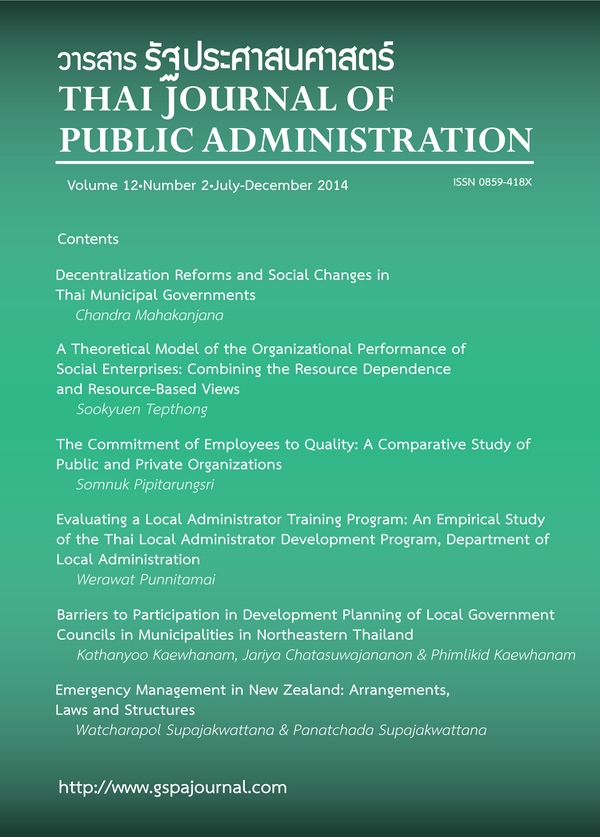Decentralization Reforms and Social Changes in Thai Municipal Governments
Keywords:
Decentralization, reform, constitution, political leadership, political participation, trust in local government, political accountabilityAbstract
In order to improve the performance of public institutions, Thailand over the past century has focused on institutional design--changing the incentives that confront actors in hopes of altering their behaviors. This article providesbrief analysis of the institutional strategies through decentralization policy, and presents new data on associated changes in level of municipal government
stability and municipal political leadership. The discussion also examines trends in political participation in municipalities, trust in local government, and political
accountability in municipal government. The data presented in this article make clear that there have been substantial changes in the political leadership of
larger municipalities in Thailand over a 30-year period spanning the adoption of important decentralization reforms. Also we can see a trend of more stable
municipal governments under the new system of direct elections, higher levels of education among elected leaders, more political participation, higher levels
of trust toward in government, and possibly higher levels of local political accountability.
Downloads
Published
2014-12-31
How to Cite
Mahakanjana, C. (2014). Decentralization Reforms and Social Changes in Thai Municipal Governments. Journal of Public Administration, Public Affairs, and Management, 12(2), 9. retrieved from https://so05.tci-thaijo.org/index.php/pajournal/article/view/30182
Issue
Section
Articles



